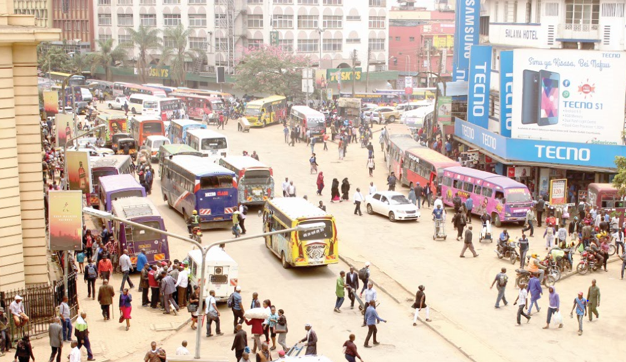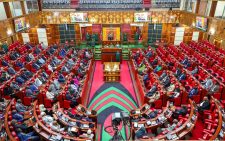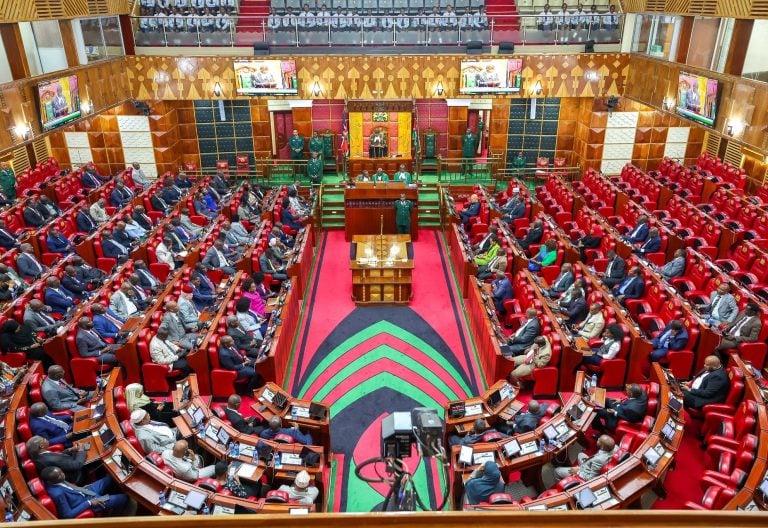Matatu chaos: Who will save us?

In December 2003, Kenyans collectively breathed a sigh of relief when then Transport minister John Michuki introduced tough regulations to tame the unruly matatu sector.
For years, the sector had been synonymous with chaos, impunity, and lawlessness. Matatus were death traps on wheels, driven by reckless crews who flouted traffic rules with abandon.
Passengers were subjected to loud blaring music, overcrowding, and harrowing speeds as matatu operators prioritised profits over safety. The ‘Michuki rules’ were a game-changer.
They required matatus to install speed governors, safety belts, and have uniformed drivers and conductors. The results were immediate and transformative. Roads became safer, and for once, Kenyans felt a sense of order in the public transport sector.
Fast-forward to 2025, and the gains made under Michuki’s tenure have been eroded. The matatu sector has reverted to its old, chaotic ways, and this time, it is joined by the equally unruly boda boda industry.
The roads have once again become a battlefield, with matatus and boda bodas breaking every rule in the book. The Rongai route, for instance, is now infamous for matatus like the “Money Fest,” which flout traffic laws with impunity.
These vehicles speed through red lights, overload passengers, and drive on pedestrian walkways, all while blaring deafening music. The boda boda riders, on the other hand, weave through traffic, ride on pavements, and ignore traffic signals, creating a perfect storm of chaos and danger.
The question on every Kenyan’s mind is: who will rescue us from this madness? How did we go from the relative order of the Michuki era to the current state of anarchy? And more importantly, what will it take to restore sanity on our roads?
The success of the Michuki Rules was not just in their strictness but in their enforcement. Michuki was a no-nonsense leader who understood that rules without enforcement are merely suggestions.
He ensured that traffic police and other relevant authorities implemented the rules to the letter. Matatu operators who failed to comply had their vehicles impounded and licenses revoked. The message was clear: no one was above the law.
However, over time, the enforcement of these rules waned. Corruption within the traffic police force became rampant, with officers taking bribes to turn a blind eye to violations.
Matatu operators, sensing the laxity, began to revert to their old habits. Speed governors were tampered with, safety belts disappeared, and the loud music returned. The once-feared Michuki Rules became a distant memory, and the matatu sector slipped back into chaos.
While the matatu sector was regressing, the boda boda industry was growing at an alarming rate. Boda bodas, initially seen as a convenient and affordable mode of transport, quickly became a law unto themselves.
With little to no regulation, riders began to flout traffic rules with impunity. They ride on pavements, against traffic, and overload their motorcycles, often carrying three or more passengers. Accidents involving boda bodas have become a daily occurrence, with many riders and passengers losing their lives or suffering life-altering injuries.
The boda boda industry’s rapid growth has outpaced the government’s ability to regulate it. Many riders are untrained and unlicensed, and the motorcycles they use are often unroadworthy.
The lack of enforcement has created a culture of impunity, where boda boda riders believe they are above the law. This has not only made our roads more dangerous but has also contributed to the overall breakdown of law and order.
The return of chaos on our roads is a symptom of a broader failure of leadership. Successive governments have failed to prioritise the enforcement of traffic laws and the regulation of the transport sector.
The National Transport and Safety Authority (NTSA), which was established to oversee road safety, has been largely ineffective. Its efforts have been hampered by corruption, inadequate resources, and a lack of political will.
The traffic police, who are supposed to enforce the rules, have become part of the problem. Instead of ensuring compliance, many officers are more interested in collecting bribes from matatu and boda boda operators.
This corruption has created a vicious cycle, where operators are willing to break the rules because they know they can buy their way out of trouble.
The consequences of this lawlessness are dire. Road accidents have become one of the leading causes of death in Kenya, with thousands dying every year due to road accidents.
The Michuki rules showed us that it is possible to tame the matatu sector, but they also highlighted the importance of sustained effort and political will. Today, we are faced with an even greater challenge, as the boda boda menace compounds the problems caused by rogue matatus.
–The writer is a Communication Consultant














